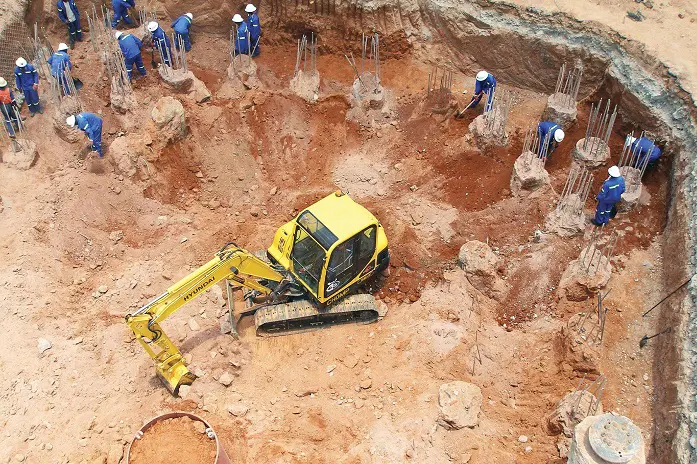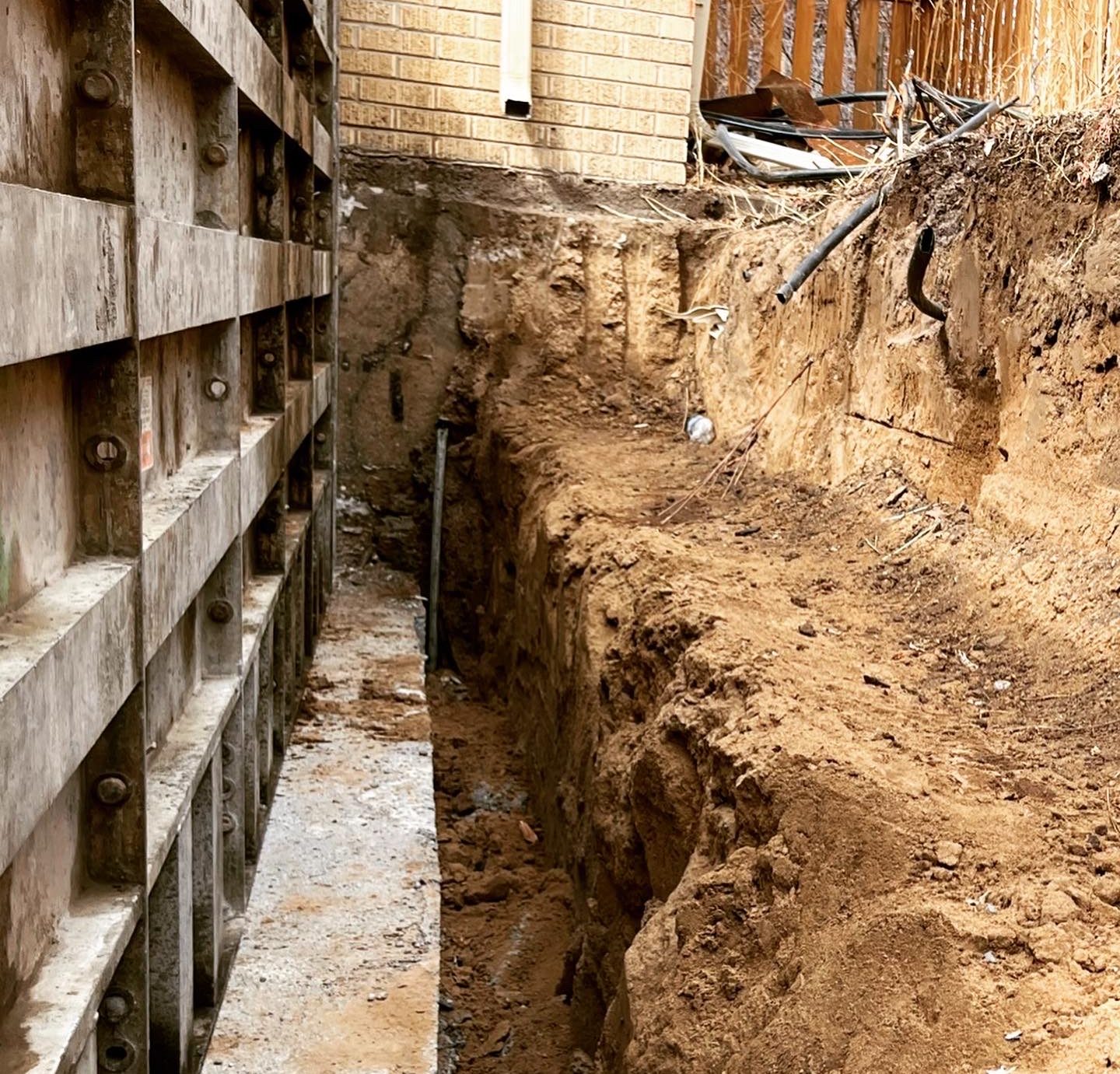Vital High Qualities of Effective Civil Consulting Engineers
Vital High Qualities of Effective Civil Consulting Engineers
Blog Article
An In-depth Review of the Key Duties of Geotechnical Designers in Website Characterization and Ground Renovation Strategies for Design Solutions
Geotechnical engineers are important to the successful implementation of design tasks, entrusted with the critical duties of website characterization and the application of ground improvement methods. Their work entails a thorough evaluation of subsurface conditions, using different testing techniques to determine dirt and rock properties.
Function of Geotechnical Designers
Geotechnical designers play a critical role in the design and building and construction of infrastructure by assessing the behavior of dirt and rock beneath the surface - geotechnical eng. Their duties encompass assessing subsurface problems to inform style choices that ensure structural security and safety and security. By carrying out comprehensive analyses of soil residential properties, including shear strength, compressibility, and permeability, geotechnical designers supply essential data that affects the selection of proper building products and techniques
In addition to analyzing soil auto mechanics, geotechnical designers are entrusted with determining possible hazards such as landslides, sinkholes, and ground negotiations. Their proficiency assists mitigate dangers connected with these geotechnical sensations, consequently shielding both the environment and public safety and security. They likewise work together very closely with various other engineering techniques, guaranteeing that geotechnical factors to consider are incorporated right into total project design.
Moreover, geotechnical designers involve in the assessment of existing frameworks, supplying referrals for retrofitting and fixings when required. Their detailed understanding of soil-structure communication is essential for the advancement of lasting facilities options. On the whole, the role of geotechnical engineers is integral to the successful realization of building jobs, guaranteeing they are risk-free, durable, and compliant with regulatory standards.

Site Characterization Processes
Reliable site characterization procedures are vital for comprehending the subsurface problems that influence task style and execution. Geotechnical designers use a methodical approach to collect, evaluate, and translate information regarding dirt, groundwater, and rock characteristics. This procedure starts with a comprehensive testimonial of existing literature and historical website data, offering understandings right into previous site problems and potential obstacles.

Information evaluation follows fieldwork, where engineers make use of geostatistical methods to interpret searchings for and create geological designs. Via persistent site characterization, geotechnical engineers lay the foundation for successful job execution, enhancing and lessening unpredicted difficulties resource allotment.
Soil and Rock Screening Methods
While recognizing subsurface conditions is important, the option of ideal dirt and rock testing techniques is just as necessary for accurate analysis and style. Geotechnical designers utilize a variety of testing methods to assess the physical and mechanical properties of soil and rock products.
Lab examinations, such as Atterberg restrictions, grain dimension evaluation, and unconfined compressive toughness tests, provide important data on dirt behavior under different moisture problems and filling circumstances. These tests aid figure out dirt category and anticipate negotiation or shear strength characteristics vital for structure design.
In-situ screening approaches, consisting of Requirement Infiltration Examinations (SPT), Cone Infiltration Examinations (CPT), and pressure meter tests, enable engineers to gather information directly from the ground. These techniques use valuable insights into the dirt's thickness, consistency, and stratification without the demand for comprehensive tasting.
Rock testing normally involves core tasting and lab analysis to evaluate residential or commercial properties like uniaxial compressive stamina and rock top quality classification (RQD) With each other, these soil and rock testing methods enable geotechnical engineers to make informed choices concerning site-specific obstacles, making sure the safety and security of engineering remedies.
Ground Renovation Methods
Ground enhancement techniques are necessary for enhancing the design residential properties of soil, therefore raising its load-bearing ability and minimizing negotiation. These approaches are essential in attending to difficulties presented by troublesome or weak dirts, which can considerably influence the stability and resilience of frameworks.
Various ground enhancement strategies are utilized, consisting of compaction, grouting, and dirt stabilization. Compaction includes increasing the thickness of dirt via mechanical means, which improves its shear toughness and reduces compressibility. Grouting, on the other hand, includes injecting a liquid product right click for more into the ground to load gaps and boost dirt cohesion. This method is specifically efficient for treating loose sands or fractured rock.
Soil stablizing incorporates a series of methods, from chemical ingredients to mechanical treatments, targeted at improving the soil's resistance to disintegration and contortion. Techniques such as lime stabilization or cement blending alter the residential or commercial properties of the soil at a fragment level, enhancing its overall performance.
Relevance of Geotechnical Assessments
Geotechnical assessments play a crucial role in the planning and design of design jobs, as they offer important details regarding the subsurface problems. Comprehending soil residential properties, rock developments, groundwater degrees, and possible geohazards is essential for making reference sure the stability and security of structures. These analyses make it possible for engineers to make informed decisions concerning site option, style parameters, and building approaches.
The significance of geotechnical analyses prolongs past preliminary job stages; they are critical in threat administration and price effectiveness. By identifying prospective concerns early, such as dirt settlement, incline instability, or excessive groundwater, designers can devise appropriate reduction techniques, minimizing the likelihood of pricey delays and architectural failings. In addition, these assessments support conformity with governing requirements and enhance the sustainability of engineering techniques.

Conclusion
Finally, geotechnical engineers are crucial to guaranteeing the safety and security of engineering jobs with thorough site characterization and ground improvement techniques. geo tech engineering. Their organized approach to evaluating subsurface problems, incorporated with their recommendations for effective ground modification, significantly improves dirt buildings and load-bearing ability. The know-how of geotechnical designers not only promotes informed project preparation yet likewise makes sure conformity with policies and promotes effective interaction among stakeholders, inevitably adding to successful design end results
Geotechnical designers play a crucial duty in the layout and construction of framework by examining the habits of dirt and rock under the surface area. By performing thorough analyses of soil residential properties, consisting of shear stamina, compressibility, her explanation and permeability, geotechnical engineers give essential data that influences the selection of suitable building materials and strategies.
In addition to evaluating soil mechanics, geotechnical designers are entrusted with recognizing prospective risks such as landslides, sinkholes, and ground negotiations. Geotechnical designers utilize a systematic method to gather, evaluate, and analyze information regarding groundwater, soil, and rock qualities. By determining possible issues early, such as soil negotiation, incline instability, or extreme groundwater, engineers can design ideal mitigation strategies, reducing the probability of expensive delays and architectural failings.
Report this page